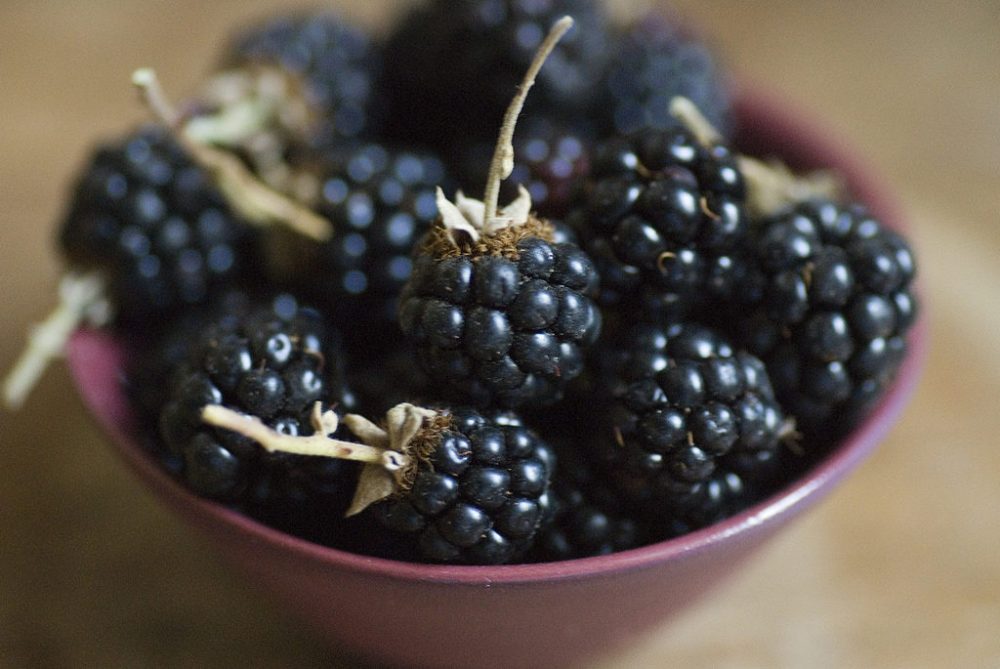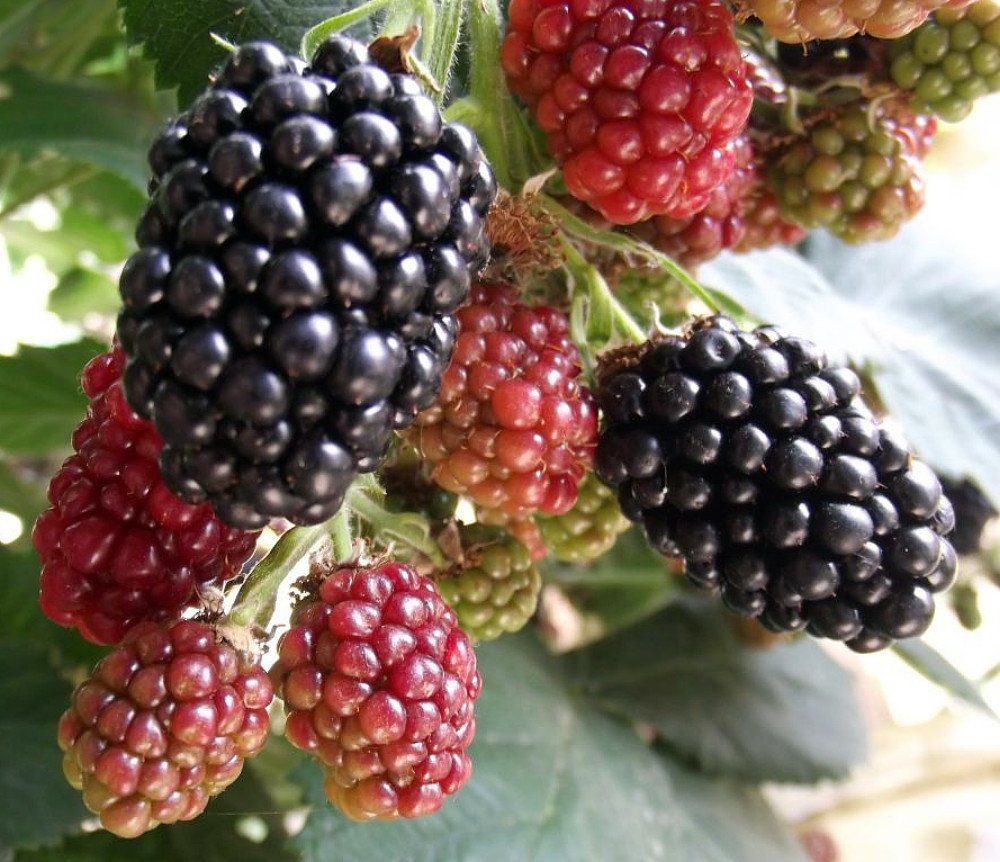
31. Youngberries:
These belong to the blackberry family. They ripen 2 weeks earlier than blackberries and are purple-black in color. These are rich in vitamin A, C, and B1, calcium, and
cellulose. Youngberry fruit is of deep wine color has few seeds and a small core. There are more than 24 varieties of blackberry around the world and youngberry is just one of those. While the blackberry was grown as natural berries, it was rarely developed into a garden fruit before 1850 but following that year the youngberry has been widely grown.
The technical name of the youngberry is Rubus Cecaesius and the plant that belongs to the Rosaceae family. Youngberry is a crossbred blackberry variety with a red color and juicy flesh. Usually, youngberries are planted in gardens. While the fruit ripens, it turns purple-black, with a cone shape.
Youngberry is a complex hybrid between three different species from the genus Rubus, the raspberries, blackberries, and dewberries of the rose family. The berries of the plant are eaten fresh or used to make juice, jam, etc.
Byrnes M. Young, a businessman in Morgan City, Louisiana, who loved science and plants, had an ongoing correspondence with Luther Burbank, who had created the ‘Phenomenal’ blackberry–raspberry hybrid. While he had no success[clarification needed] growing either loganberries (another blackberry-raspberry hybrid) or ‘Phenomenal’ berries, Young crossed the ‘Phenomenal’ with the Austin-Mayes dewberry that was better adapted to his area. This produced ‘Youngberry’ in 1905, which was then released in 1926.
While the youngberry is not grown much in the U.S., it is grown in Australia, New Zealand and South Africa and was a parent of the commercially successful olallie blackberry and a grandparent of the marionberry.Like its ‘Phenomenal’ parent, it is a hexaploid.
Health benefits of Youngberries

Youngberry is abundant with Vitamin A, which is essential in keeping good eyesight.
The presence of vitamin B1 in the berries helps promote digestion. Thiamine is also good for maintaining a healthy nervous system in our body.
The health benefits of vitamin C in youngberries include helping us to build a stronger immune system and also healing the wounds faster.
Calcium in the berries helps build stronger bones and teeth. It is essential to prevent osteoporosis.
As youngberries are rich in potassium it helps control hypertension. Potassium also aids to restore regular function to your kidneys. Youngberries have a naturally sourced plant phenol called ellagic acid, which helps reduce carotid artery wall thickness and blood pressure.
Pectin in the fruit helps lower LDL cholesterol, improve the conditions of insulin resistance and cure diarrhea.
The leaves and roots of the fruit have flavonoids, which are antioxidants that may help prevent cancers.
Youngberries are believed to contain various therapeutic properties just like the roots that are dried and utilized in decoctions.
The fruit is also high in iron. The key function of iron is to carry oxygen from our lungs to muscles and some other organs in our body. Deficiency of iron may cause headaches, fatigue and irritability.
Youngberries contain a moderate quantity of magnesium, which helps maintain regular functions of muscles and nerves, regulates heart rhythm, builds a strong immune system, and strengthen bone structures.
Substantial amount of dietary fibers found in youngberries are good for preventing constipation. Fibers also provides other health benefits including reducing risk of heart disease and diabetes.
Youngberry Calories and Nutritional Value
Per Serving of 1 Cup Youngberries
- Calories 62
- Total Fat 0.71 g
- Cholesterol 0 mg
- Sodium 1 mg
- Potassium 233 mg
- Total Carbohydrate 3.84 g
- Protein 2 g
Disclaimer
The Content is not intended to be a substitute for professional medical advice, diagnosis, or treatment. Always seek the advice of your physician or other qualified health provider with any questions you may have regarding a medical condition.